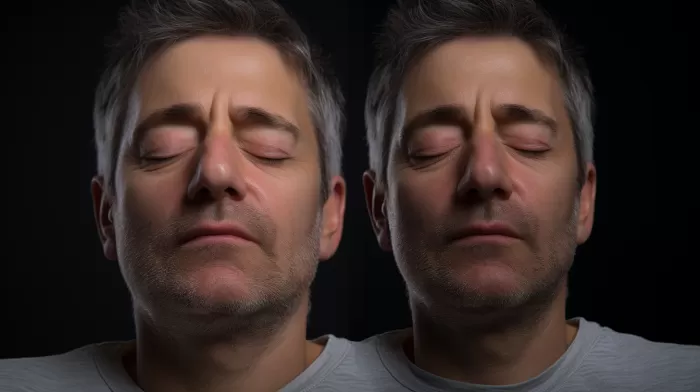Snoring isn’t just a nuisance – it can have serious implications for your health too. This common yet annoying habit is strongly linked to sleep apnea, a condition in which breathing is temporarily blocked during sleep. The National Sleep Foundation notes that snoring plagues around two-thirds of couples, and can be a sign of higher risk of high blood pressure and heart disease. As if the ramifications on your own health weren’t enough cause for concern, snoring can also lead to distressing relationship problems as disrupted sleep for both parties can cause irritability and increased tension.
Obstructive Sleep Apnea
Snoring shares the same root causes as obstructive sleep apnea (OSA). Both are caused by an airway obstruction in the throat, usually due to the soft palate collapsing and the base of the tongue. Central sleep apnea, which is linked to a failure of the brain to signal the need for a breath during sleep, can also be a cause. In most cases, snorers are subject to sleep apnea.
Traditional medicine considers sleep apnea to be a severe problem when a person experiences more than 10 apneic episodes in an hour, leading to low blood oxygen levels. As well as leading to cardiovascular issues, these episodes can cause sleepiness during the day. Platets include:
- Excessive daytime sleepiness
- Morning headaches
- Trouble concentrating or memory loss
- Fatigue
- Loud snoring
- Restless sleep at night
Soft Tissue Collapse
The root cause of snoring and sleep apnea can often be the soft tissue in the throat collapsing, blocking the airflow. Obesity is a common risk factor in experiencing these problems, but many patients with OSA are not overweight or even obese. In these cases, throat occlusion can often be due to weak and flabby muscles of the pharynx, naturally narrowed bones of the mouth, or mucus congestion in the throat as a result of allergies. Drinking alcoholic beverages at night and smoking both worsen these conditions.
The Health Risks of Sleep Apnea
Sleep apnea doesn’t lead to death from suffocation during sleep, but the long-term health risks it presents when left untreated include:
- Three times the risk of dying this year1
- Four times the risk of stroke2
- Tripled risk of heart disease[^3]
- Doubled risk of high blood pressure[^4]
- Increase in your risk of car accidents by six times[^5]
- Lowered sex drive and increased irritability[^6]
- High levels of anxiety or depression[^7]
Treatment Options
Both conventional and natural treatments are available for sleep apnea and snoring. Consider sleep studies to find the best treatment options, ranging from lifestyle changes to the use of Continuous Positive Airway Pressure (CPAP) devices. For a more natural, lifestyle-focused approach, you can try to:
- Lose weight
- Cut down on alcohol in the evening
- Quit smoking
- Sleep on your side
- Use a humidifier at night
- Perform throat exercises to strengthen the muscles of the throat
- Practice good sleep hygiene



